Key lines of enquiry for adult social care services

What are CQC KLOEs?
The Care Quality Commission (CQC) is the independent regulator of health and adult social care services in England.
Health and social care services are independently regulated and inspected by the CQC to ensure that they provide people with high-quality care. The CQC encourages services to make improvements where necessary so people can access the best possible care and support.
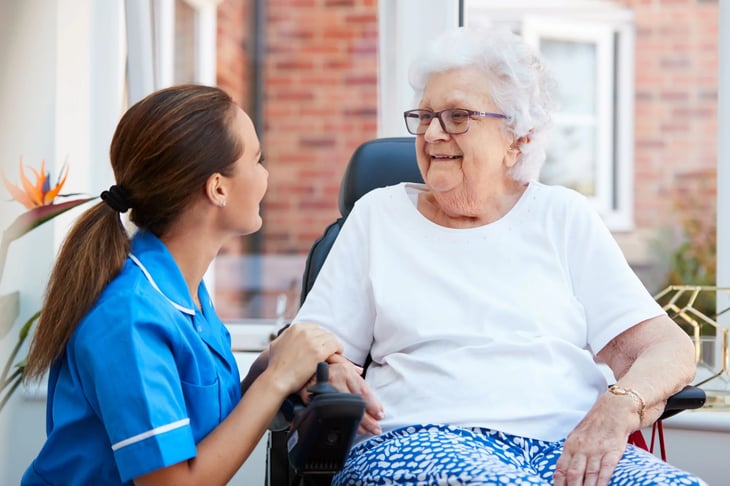
The Key Lines of Enquiry, also known as KLOEs for short, is an essential framework utilised by the CQC during its inspections to assess whether a care home is well-led, safe, caring, effective and responsive to a person's needs.
The results of the inspections are published online along with a report and rating, which can assist people in making informed decisions about the care service they choose.
Levels of ratings
After an inspection, the CQC rates services for the quality of care across its five key questions: are they safe, effective, caring, responsive and well-led?
The CQC award ratings on a four-point scale: outstanding, good, requires improvement or inadequate.
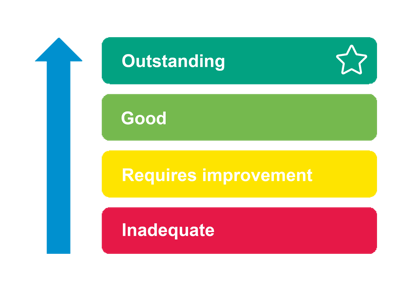
Ratings are based on an assessment of the evidence the CQC gather using the key lines of enquiry (KLOEs) in the assessment framework for adult social care.
Click here to learn how to boost care staff confidence when speaking with the CQC.
What are the 5 CQC KLOEs?

- Safe: are the people receiving care, staff and visitors protected from abuse and avoidable harm?
- Effective: is the care, treatment, and support provided evidence-based and achieving good outcomes for maintaining quality of life?
- Caring: do care staff involve and treat residents with compassion, kindness, dignity and respect?
- Responsive: is your service organised so that it meets residents' needs?
- Well-led: does the leadership, management and governance of the organisation make sure it's providing high-quality care that's based on residents' individual needs, that it encourages learning and innovation, and that it promotes an open and fair culture?
CQC's new single assessment framework
Although the five key questions listed above (safe, effective, caring, responsive and well-led) and the four-point rating scale of outstanding, good, requires improvement and inadequate will remain, how the CQC assesses if you are meeting those five standards and how the CQC will determine your overall rating is changing.
Click here to learn more about the CQC's new single assessment framework.
Looking for an informative webinar to help you efficiently prepare for your inspection with a detailed update on the Single Assessment Framework?
Click here to register!
Why are CQC KLOEs important in social care?
The CQC monitors care providers continuously after they have registered.
During the CQC's inspections, they have the opportunity to engage with both the staff and residents and observe the care being provided.
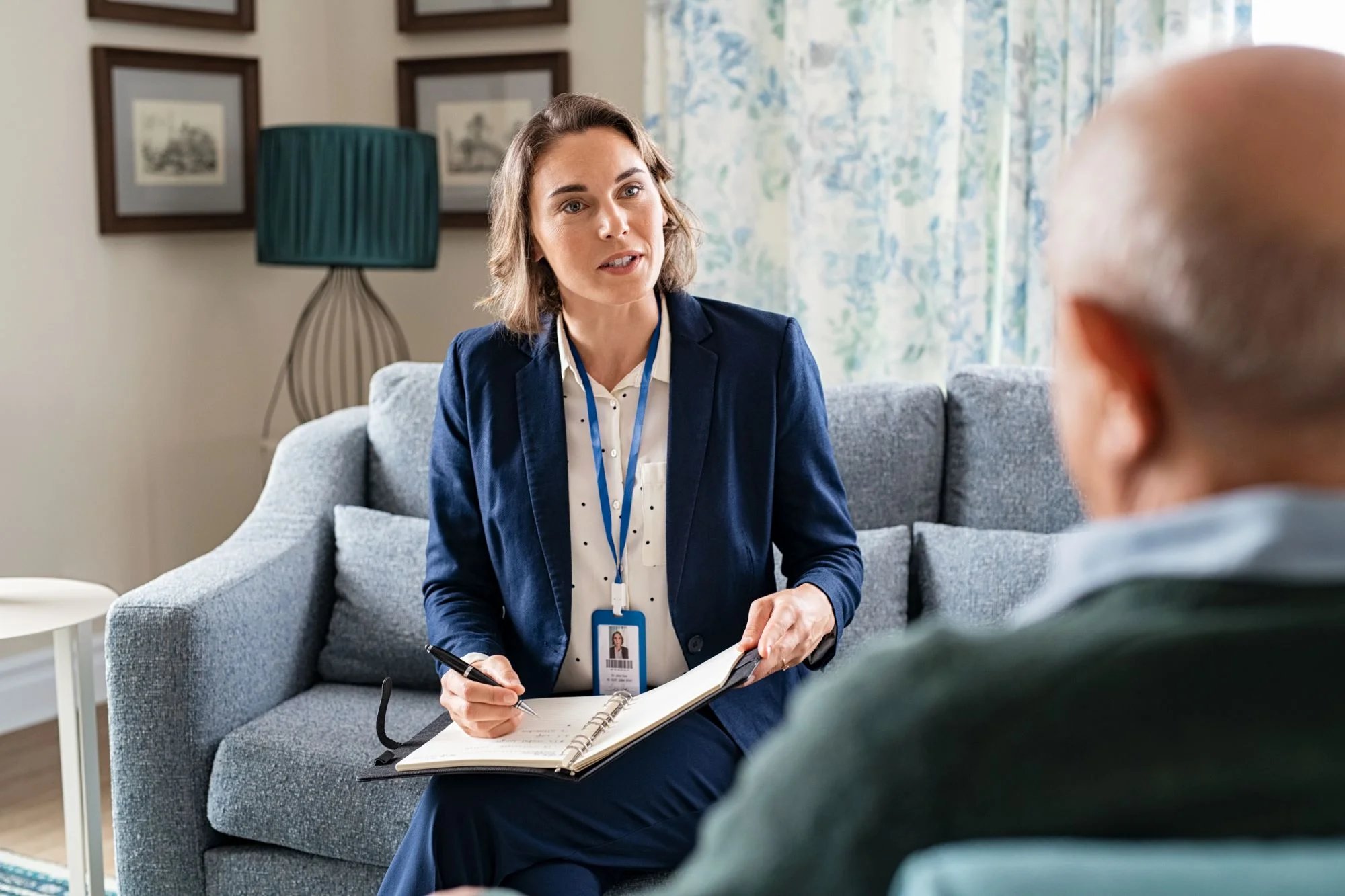
They also check the systems and processes the service uses and ask the five key lines of enquiry (KLOES). The CQC may also review residents' records to verify how their needs are managed while strictly adhering to rules governing the protection of their information.
The inspections are important because they ensure that health and social care services in England provide people with safe, effective, compassionate and high-quality care. It also allows the CQC to prevent poor care and abuse from happening in the future.
The CQC takes action if care services fail to meet the fundamental standards. If care falls short, the CQC use their powers to:
- Protect residents from harm and ensure they receive care that meets the standards they have a right to expect and make sure services improve.
The actions taken by the CQC depend on the severity of the problems they have identified and how they affect residents. The CQC may do the following:
- Give care providers notices about what improvements they must make and by when.
- Hold the care provider to account by:
- issuing simple cautions
- issuing fines
- prosecuting cases where people are harmed or placed in danger of harm
- Limit what the care provider may do for a set time.
- Place a care provider in 'special measures', which gives them a clear timetable within which they must improve the quality of care they provide, or the CQC will take further action (for example, cancel their registration).
How Person Centred Software supports your care organisation with KLOEs
Our digital social care record system, mCare, is designed with the Care Quality Commission's standards in mind, making it an ideal tool for your care organisation.
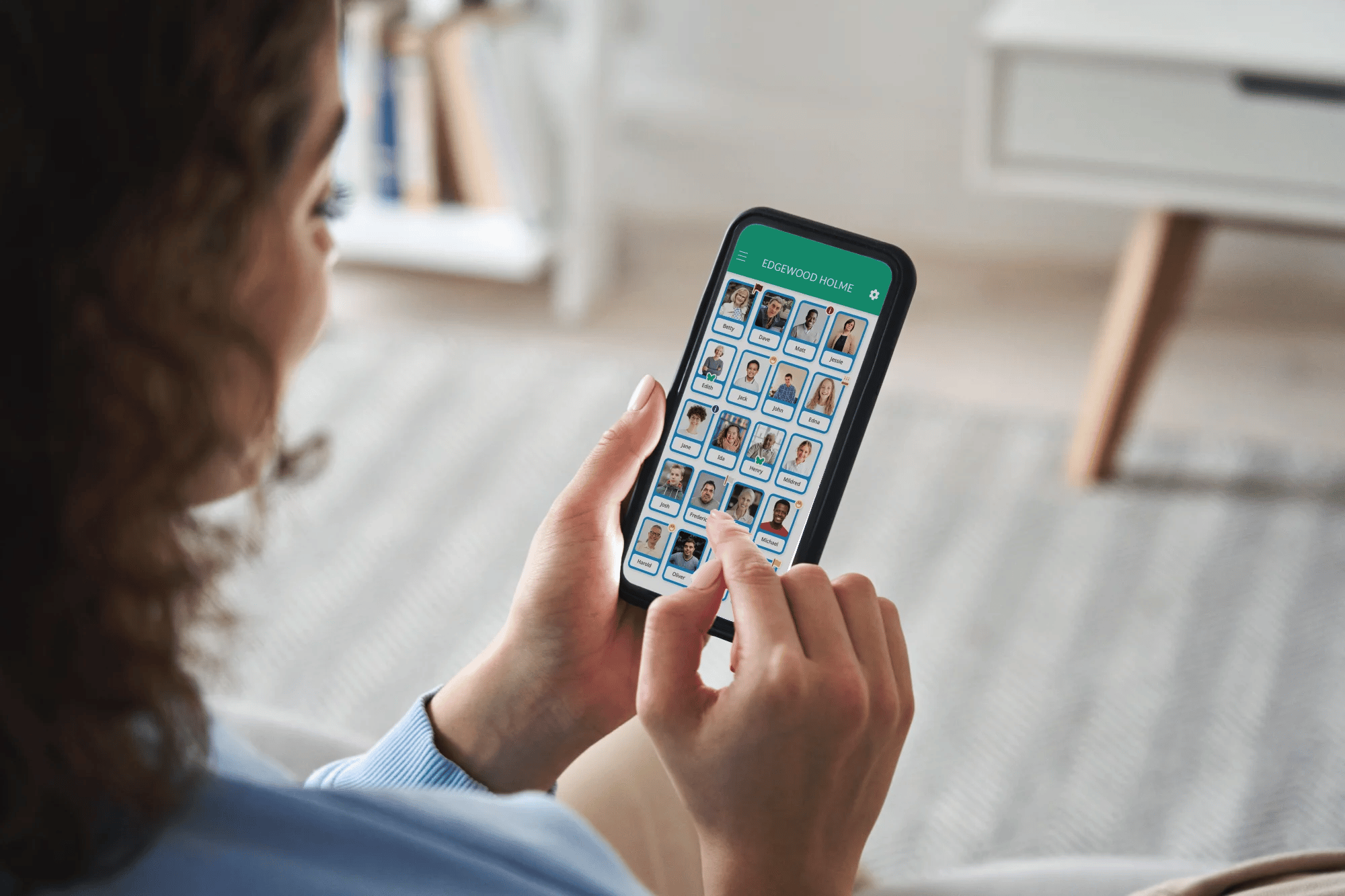
mCare gives care providers all the information they need for CQC inspections, which is important as evidence plays a significant role in the CQC's new single assessment framework. mCare not only helps to improve CQC scores and meet the government target of having a digitised care record, but it also helps to improve the lives of those receiving care and those working in the sector.
The CQC's inspection teams use the Key Lines of Enquiry (KLOE) inspection framework to assess your care service, and mCare makes sure your organisation is inspection-ready. CQC inspectors will make their judgement by assessing services against five key questions:
|
Key lines of enquiry: |
Meaning: |
mCare |
|---|---|---|
|
Are they safe? |
Are the people receiving care, staff and visitors protected from abuse and avoidable harm? |
mCare’s Care Alert Alarm feature indicates where critical actions are required, and the Accidents and Incidents feature quickly flags accidents and incidents at the point of care. Along with many other features, mCare has everything you need to keep your residents safe and protected, including an electronic medicines management system that helps carers deliver the right medication at the right time. |
|
Are they effective? |
Is the care, treatment, and support provided evidence-based and achieving good outcomes for maintaining quality of life? |
Everything is logged and tracked in real-time, so when it comes to sharing or providing evidence, it's all there at the click of a button. Carers can ensure that each resident's needs are being met with mCare’s 'Person Centred Care Plans' feature. They can also effectively manage and track the progress of a wound or infection with mCare’s Body Map feature. |
|
Are they caring? |
Do care staff involve and treat residents with compassion, kindness, dignity and respect? |
Mcare’s Person Centred Care Plans also meet the social and medical needs of the people you support. Residents’ personal preferences and important information is always available and accessible at the point of care. |
|
Are they responsive to people's needs? |
Is your service organised so that it meets residents' needs? |
mCare has many features that aim to keep your organisation responsive to residents' needs. For example, mCare's 'Who I Am' feature enables care teams to provide more responsive and personalised care by giving care teams the option to share vital information about residents' routines, life stories and wishes with health and care professionals. |
|
Are they well-led? |
Does the leadership, management and governance of the organisation make sure it's providing high-quality care that's based on residents' individual needs, that it encourages learning and innovation, and that it promotes an open and fair culture? |
Care providers can be confident that their team is providing the best quality of care to residents; they can monitor the effectiveness of care, improve the management of care delivery and access care intelligence, which gives them visibility across the whole organisation. |
If you'd like to view a full list of mCare's features and what they do, click here.
From keeping care plans up to scratch to staying up to date with audits and reports, this simple and sophisticated digital social care record system, accredited by NHS England, will help your organisation transform how you care.
How Person Centred Software's Digital Reception helps to provide feedback on people's experience of health and care services
The CQC has determined six categories of evidence it suggests will bring 'structure and consistency to the assessment process'. One of the categories is 'people's experience of health and care services'.
The CQC defines this as "a person's needs, expectations, lived experience and satisfaction with their care, support and treatment, including access to and transfers between services". It also includes evidence from families, carers and advocates for people who use services.
When the CQC inspects your care organisation and asks about people's experience of your service, you will have plenty of evidence to share if you have Digital Reception implemented.
Digital Reception is a hands-free, GDPR-compliant, front-of-house e-reception sign-in book for care organisations that streamlines the sign-in process for visitors, staff and residents.
Digital Reception helps care providers generate reviews, which helps to improve their services and overall quality of care and gives families looking for care homes for their loved ones a "trustworthy reviews experience".
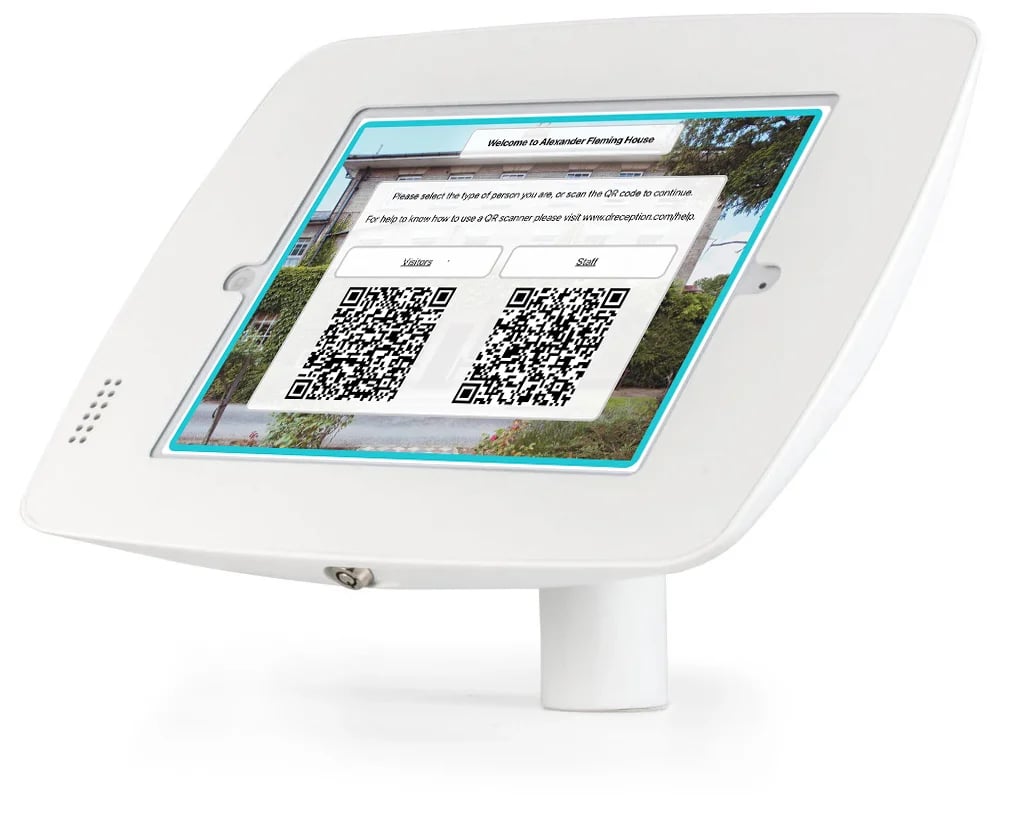
How does it work?
This electronic visitor-management system supports any number of social care settings and integrates with Autumna, the largest register of social care providers for older adults in the UK.
When visitors sign out of your care organisation using Digital Reception, they are presented with a quick and easy option to provide feedback. The feedback is sent from Digital Reception to Autumna, instantly updating your care organisation's premium profile and providing families with live, genuine ratings.
Currently, care workers spend up to one day of their week chasing reviews. Implementing Digital Reception has shown significant benefits in generating a high volume of reviews. In a recent trial, Autumna found that in care organisations using Digital Reception, 75% of visitors left a review, eliminating the need for staff resources to be spent chasing reviews.
Key benefits for care providers:
- Allows you to show CQC people's experience of your service
- Gives families seeking a care home for their loved ones genuine, authentic reviews
- An effortless and efficient way to collect visitor feedback
- Provides a great first impression to visitors
- Helps reduce staff costs with a modern automated visitor-management system
- Saves time, reduces workload, and improves employee wellbeing;
- Enhances workplace safety by using a hands-free QR code approach
- GDPR-compliant – allows you to stay compliant and handle visitor's data appropriately
- Analyses your Digital Reception data so you can gain better visibility into visitor activity
- Visitors' details can be integrated into the digital social care record system to evidence who has visited each resident
- Cuts out manual processes and improves digital efficiency
- Includes COVID vaccination status check and editable COVID questions.
Click here to learn more about guidance for care providers on meeting CQC cleaning standards.
Click here to discover more on CQC’s new technology KLOEs for care providers.
Start your digital journey with Person Centred Software today.
Built for carers and loved by carers




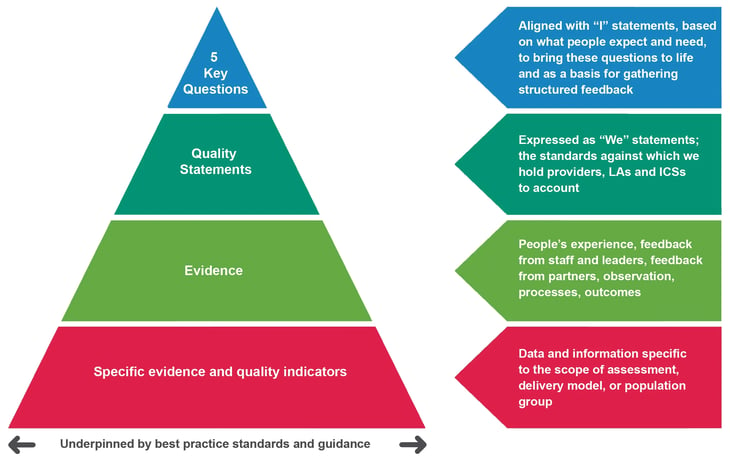
.png)

.jpg)
.webp?width=80&height=80&name=HTD%20Awards%202023%20Badge%20(4).webp)














